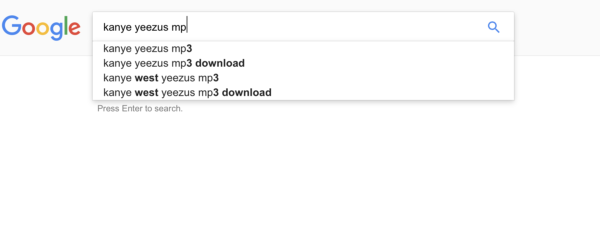Say goodbye to quick Google searches for leaked MP3 downloads. The search giant has changed the way it codes its search results so that illegal sites are demoted and fair sites are more likely to pop up.
The world-first move in the UK, by Google, Bing and other search engines, is thanks to government-hosted talks which threatened legislation if search engines did not update their code.
Music groups have obviously been complaining about the unwitting promotion of unlicenced infringing sites since, well, Napster probably; but they have a point. Despite the plethora of legal and free licenced music outlets, sites like Google are impacting the legal market and stunting musicians’ careers.

In fact, Google’s autocomplete tool even provides pirate-friendly terms. It’s no wonder in October Google was processing 24 million links to “pirate” pages per week.
However, restricting people’s access to pirate sites won’t change everyone’s dirty piracy habits.
BPI chief exec Geoff Taylor warns the move won’t be a silver bullet:
“The code will accelerate the demotion of illegal sites following notices from rights holders, and establishes ongoing technical consultation, increased co-operation and information sharing to develop and improve on the process. It will also enable new practices to be adopted where needed,” he said.

































